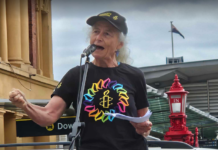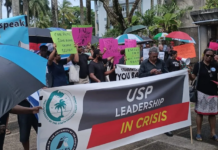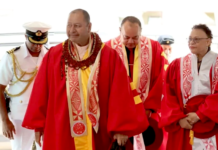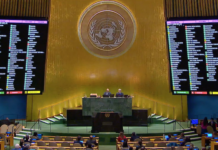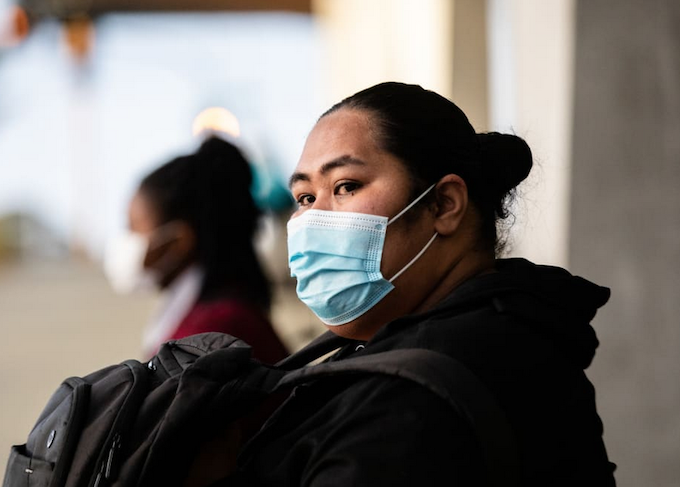
A GPs advocacy group says that practices learned from the covid-19 pandemic, like staying home when sick or wearing masks in health facilities, should remain in place to halt the spread of infectious diseases.
As of August 15, the mandates ended for the seven-day isolation period and masks in health settings, with the Health Minister Dr Ayesha Verrall saying wastewater testing showed little trace of the virus.
- LISTEN TO RNZ MORNING REPORT: ‘I think we can learn from covid’ – Dr Bryan Betty
- ‘Covid-19 has transitioned from a pandemic threat to an endemic infectious disease’ – Professor Michael Baker
- READ MORE: Other covid-19 reports
Dr Verrall acknowledged many would still feel vulnerable.
“So it is on all of us to think well if we’re visiting an aged residential care home for example, that we do follow the recommended procedures there.
“Te Whatu Ora will continue to encourage people to wear masks when they go to hospital — they won’t be mandated.”
Covid cases accounted for just over 2 percent of hospital admissions, Dr Verrall said.
Last step on wind down
Prime Minister Chris Hipkins told RNZ Morning Report this was the last step in winding down covid-19 restrictions.
“We waited until after the winter peak period. The health system overall, while it’s been under pressure and it’s still under pressure, had a much better winter this winter than last winter.”
He said it was on the advice of the director-general of health and there was never a perfect time to make changes to health settings.
General Practice New Zealand chair Dr Bryan Betty said practices like mask wearing and self-isolation should be encouraged for all viruses, not just Covid.
He told Morning Report people needed to continue with the lessons that were learnt from covid but which were applicable to all viruses that were spread from person-to-person such as influenza and RSV.
“Voluntarily staying at home if you do have a flu or a cold so you don’t spread it, and I think masking in public areas of health facilities voluntarily is something we should still keep in play.”
Health providers should consider ensuring masks were worn in places where sick people gathered such as hospitals or GPs’ waiting areas, Dr Betty said.
Vaccination still important
Vaccination would still play an important part in reducing infection and re-infection, he said.
“We do that every year for influenza, we are potentially going forward going to be recommending that for covid, especially for vulnerable populations.”
Employers should be considering how to support workers so they do not come into work sick, he said.
Employers should give people with colds, the flu or Covid the opportunity to work from home if they can to avoid spreading the illness around the workplace, he said.
University of Otago epidemiologist Professor Michael Baker also urged people to stay home when they were sick with covid-19, even though all of the health restrictions had been lifted.
Professor Baker told Morning Report that covid had transitioned from a pandemic threat to an endemic infectious disease.
“Unfortunately that means it’s there the whole time, it is still in New Zealand among the infectious diseases, the leading cause of death and hospitalisation and we know that those infections and reinfections are going to add to that burden of long covid.”
Still vital to isolate
People must remember that it was still vital to isolate when they were sick and not go to work or school or socialise which spread the virus, he said.
People should also continue to wear masks in medical facilities and in poorly ventilated indoor spaces, he said.
New Zealand had come through its fourth wave of infection for the Omicron variant, he said.
“We are going to see new subvariants or lineage of the virus arrive, they will be better at escaping from our immunity, our immunity will wane of course unless you get boosted.”
The government needed to look at how to reinforce those behaviours that prevented covid from spreading now that the mandates had been removed, he said.
“I mean this could be running media campaigns or developing codes of practice say with employers, Business New Zealand, I mean this is a chance for them really to show leadership about how they’re going to support the workforce in New Zealand, self-isolating when they are sick.”
Hospitilisations and mortality rates showed that covid-19 continued to have an impact and watching those rates would indicate whether the mandates had been removed too early, he said.
Integrated approach needed
New Zealand needed to develop a coherent, integrated approach to dealing with all respiratory infections which were the infectious diseases that had the biggest impact, he said.
“They have a big drain on our health resources and so we do need to look at better surveillance for these infections that will tell us what’s happening and also really it’s just having a culture of limiting transmission of these infections.”
That meant staying home when sick and using masks in indoor environments with poor ventilation, he said.
Auckland Council disability strategic advisory group chair Dr Huhana Hickey said getting rid of masks at health care centres was extremely dangerous for immunocompromised people.
“The problem for immune-compromised people is we’re frequent flyers, but we’re being asked to go into a situation that puts us all at risk of not just dealing with what’s making us sick but risking getting covid, which could kill us.”
Hickey said scrapping the seven-day compulsory isolation period could result in more workers returning while still infectious, which she believed would mean immunocompromised people were likely to stay home.
“If they cannot stay home and employers require them to work, they’re going to spread covid as well, so that means I don’t go to restaurants now because I don’t know if the waiter’s sick, I don’t know if the chef’s sick.”
Minimal impact of numbers
University of Auckland mathematics professor and covid-19 modeller Michael Plank expected the lack of mask and isolation requirements to have a minimal impact on case numbers.
He said the main drivers of infection were people who were asymptomatic cases or had not tested yet.
“I’m not sure than an isolation mandate is going to have a particularly large effect on infection rates in the long term.
“If we look at other countries that removed isolation mandates, like Australia, there’s really no evidence of a surge in numbers.”
Restaurant owners embraced the government’s decision.
The Restaurant Association surveyed more than 200 of its members, and 84 percent said they supported the idea.
But many planned to introduce their own requirements, chief executive Marisa Bidois said.
“Thirty nine percent of the respondents said they intended to mandate a five day isolation period for their employees,” she said.
“So that’s something they’re going to implement themselves as an internal policy.”
Many hospitality workers would also be expected to test themselves proactively.
“We also had 42 percent of respondents planning to require employees with any symptoms to undergo testing before returning to work.”
This article is republished under a community partnership agreement with RNZ.






























